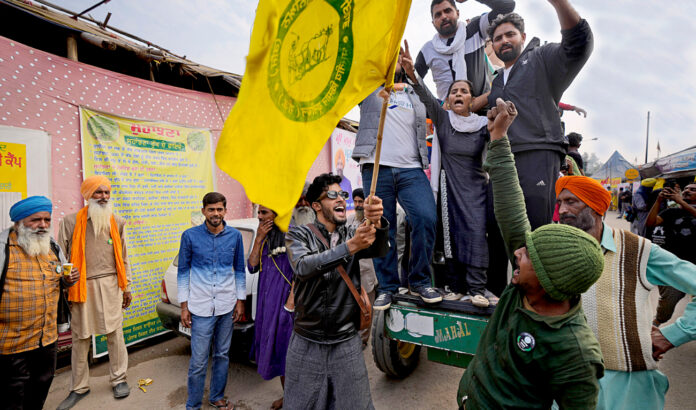NEW DELHI: The Indian government will repeal three controversial farm laws that resulted in year-long protests by hundreds of thousands of farmers, Prime Minister Narendra Modi announced on Friday.
Farmers from the states of Punjab, Haryana and Uttar Pradesh, where most of the country’s agriculture is concentrated and yields are high, have been protesting since September 2020, holding firm on their demand that the farm laws must be scrapped.
They said the laws would leave them at the mercy of corporations by allowing an unregulated entry of private players into the farm sector and eliminating the minimum support prices the government sets for agricultural produce every year.
Modi made the announcement during a televised address to the nation, saying the process to withdraw the laws will begin in December when parliament sits for the winter session.
“Today, I want to tell the country that we have decided to repeal the three farm laws,” the prime minister said, requesting the protesting farmers camped out in the outskirts of New Delhi to return to their homes and fields.
“Let us move forward afresh. In the parliament session starting at the end of this month, we will complete the process of repealing the three laws.”
Sanyukta Kisan Morcha (Joint Farmers Front), which represents more than 40 farm unions, welcomed Modi’s announcement and demanded a guarantee on the minimum support prices for all produce. The group said that the repeal of the laws “will be a historic victory of the one year-long farmers’ struggle in India.”
Rakesh Tikait, the leader of the Indian Farmers’ Union, addressed the farmers in Delhi on Friday saying, “We will wait for the day when the farm laws are repealed in parliament.”
The announcement came on the day the Sikh community celebrated the 552nd birth anniversary of Baba Guru Nanak, the founder of Sikhism. Sikhs constitute a majority in Punjab and dominate the state’s agriculture.
Farmers are the most influential voting group in India as the agricultural sector employs more than 50 percent of the country’s population. Punjab and Uttar Pradesh — the most populous agricultural state — will go to the polls early next year, and the protests were seen as posing an electoral challenge to Modi’s administration. Local polls in the populous agricultural states are considered crucial in Indian politics and if the ruling Bharatiya Janata Party (BJP) loses them, it may lose the next general election.
“I think this is a last-ditch effort to salvage the situation and recover the ground for the general election in 2024,” Delhi-based political analyst Nilanjan Mukhopadhyay told Arab News.
“The question is, has the decision come too late? Elections are just a couple of months away, and I don’t think the government can win back farmers now.”
Friday’s victory may even prompt the farmers to demand more.
“I think this is a serious crisis for the Modi government,” Mukhopadhyay said. “If the winners take the first bout, they would like to have the second bout too.”

